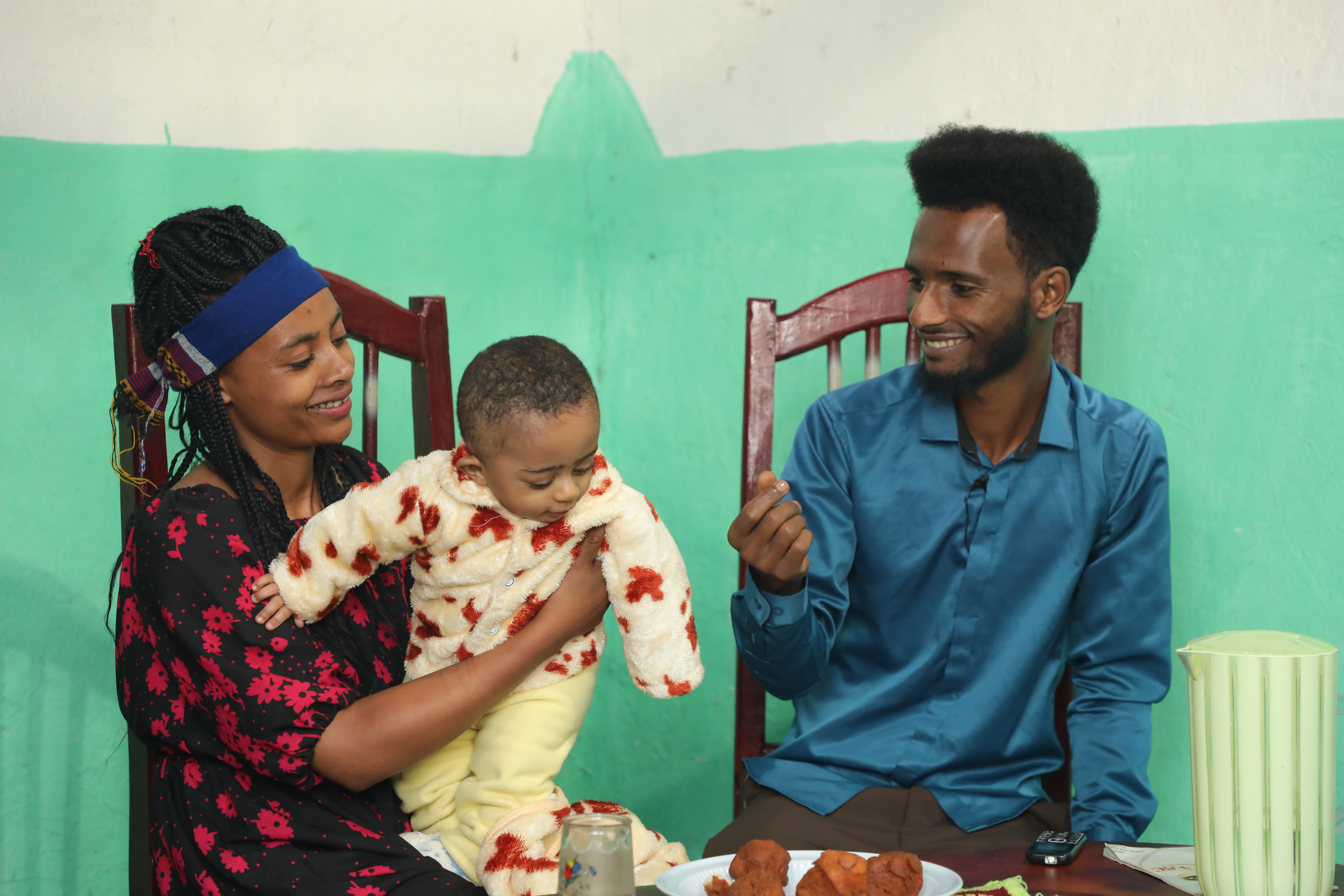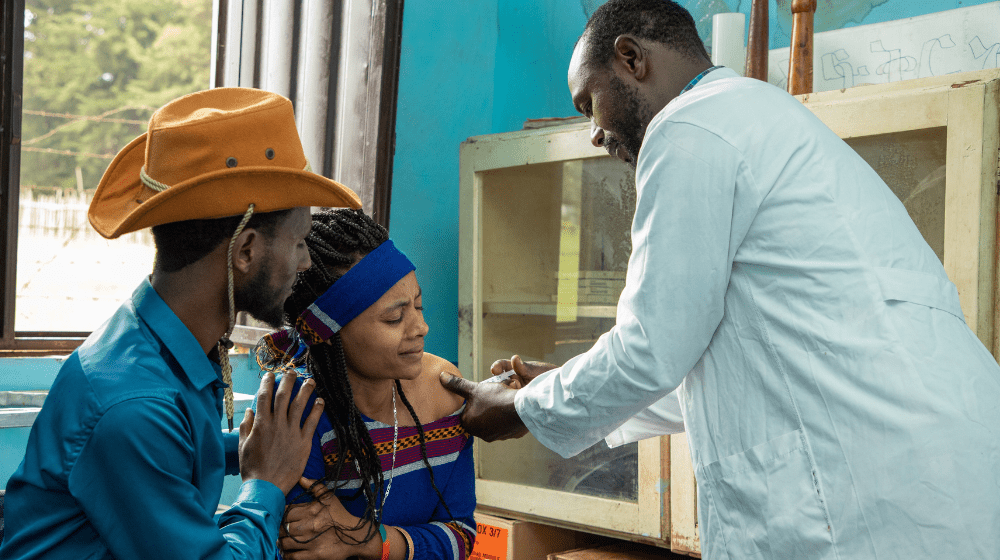Elisabet and Dawit are a young married couple living in Cheto Kebele, Yergachefe City, Gedeo Zone. Before getting married, Elsabet was a member of the peer-to-peer group at Cheto Health Center Youth Friendly Corner (YFC). Through her participation, she learned about the importance of sexual and reproductive health (SRH) and family planning (FP) and the benefits of institutional delivery. ''They teach how to be healthy,'' she said.
This has laid a strong foundation for her reproductive journey.
After getting married, Elisabet encouraged her husband Dawit to accompany her to the Cheto Health Center, to join the peer-to-peer group at the YFC and seek advice from healthcare experts regarding reproductive health. The counselor at the center explained the various family planning methods to the couple so that they could make an informed decision. ''We decided to wait for a year before having a baby. Therefore, we chose the appropriate family planning method for that,'' said Elisabet.

The Cheto Health Center has recently received essential SRH and FP equipment, kits, and medication from the UNFPA-KOICA-funded project. These resources have significantly improved the quality of care provided to individuals and families in the community. Equipped with the necessary tools and skills, healthcare professionals at the center now offer comprehensive GBV, SRH, and FP services, ensuring that couples like Elsabet and Dawit receive the necessary support.
When the time came for Elisabet and Dawit to expand their family, they returned to the health center for guidance. "We followed the advice and attended the antenatal follow-up appointments, receiving regular check-ups and vaccinations," Elisabet said.
Through the project, healthcare workers received comprehensive training on various health topics to ensure women receive high-quality care throughout their reproductive journey. These coupled with supplies for safe deliveries, including delivery beds, sterilization equipment, and materials for emergency obstetric care, have improved the services provided to women and girls. The project also provided an ambulance to meet the critical need for reliable transportation.
Elisabet gave birth to a healthy baby boy in the supportive environment of the Cheto Health Center. After having their first child, the couple decided to resume using family planning methods to space out the birth of their children. ''We would like to take care of our baby. I also need time to gain my strength,'' she said.
The Cheto Health Center provides vital SRH, FP, and GBV services to women like Elisabet, bringing life-saving care closer to their homes. This enables women and girls to make informed decisions about their reproductive health, leading to healthier communities and brighter futures for all.


